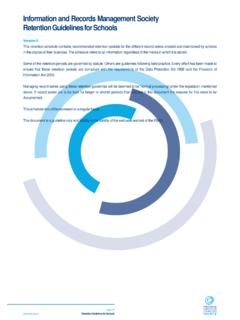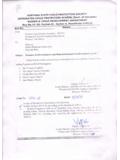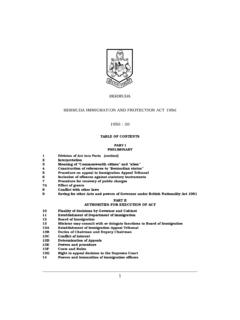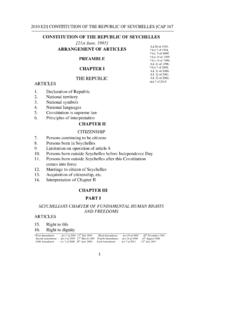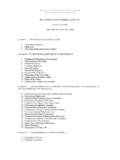Transcription of Wales Patient Access Scheme: Process Guidance - AWMSG
1 Wales Patient Access Scheme: Process Guidance July 2012 (Updated August 2016) This Guidance document has been prepared by the Patient Access Scheme Wales Group, with support from the All Wales Therapeutics and Toxicology Centre (AWTTC), and has subsequently been endorsed by the All Wales Medicines Strategy Group ( AWMSG ). Please direct any queries to AWTTC: All Wales Therapeutics and Toxicology Centre University Hospital Llandough Penlan Road Llandough Vale of Glamorgan CF64 2XX 029 2071 6900 This document should be cited as: All Wales Medicines Strategy Group, Wales Patient Access Scheme: Process Guidance . August 2016. Wales Patient Access Scheme: Process Guidance Page 1 of 33 ABBREVIATIONS ABPI Association of the British Pharmaceutical Industry AWDCC All Wales Drug Contracting Committee AWMSG All Wales Medicines Strategy Group AWTTC All Wales Therapeutics and Toxicology Centre FAR Final Appraisal Report HTA Health Technology Assessment NICE National Institute for Health and Care Excellence PAS Patient Access Scheme PASLU Patient Access Scheme Liaison Unit PASWG Patient Access Scheme Wales Group PPRS Pharmaceutical Price Regulation Scheme WPAS Wales Patient Access Scheme ACKNOWLEDGEMENTS The All Wales Medicines Strategy Group would like to acknowledge the Welsh Government, the Therapeutic Development Assessment Partnership Group and the Patient Access Scheme Liaison Unit at the National Institute for Health and Care Excellence for their assistance in developing the Process described herein.
2 All Wales Medicines Strategy Group Page 2 of 33 CONTENTS INTRODUCTION .. 3 MEMBERSHIP OF PASWG .. 4 Process FOR CONSIDERATION OF A WPAS .. 4 APPENDIX 1. INFORMATION REQUIRED FOR A Wales Patient Access SCHEME APPENDIX 2. SUBMISSION FORM FOR A SIMPLE Wales Patient Access SCHEME ..12 INTRODUCTION ..13 INSTRUCTIONS FOR MANUFACTURERS AND SPONSORS ..13 DETAILS OF THE WPAS ..14 OPERATION OF THE SCHEME ..16 ADMINISTRATIVE COST OF THE SCHEME ..17 BENEFITS OF THE SCHEME ..17 GOVERNANCE ..18 DECLARATION ..19 APPENDIX A: KEY PRINCIPLES FOR THE IMPLEMENTATION OF WPAS ..20 REFERENCES ..20 APPENDIX 3. SUBMISSION FORM FOR A COMPLEX Wales Patient Access SCHEME ..21 INTRODUCTION ..22 INSTRUCTIONS FOR MANUFACTURERS AND SPONSORS ..22 DETAILS OF THE WPAS ..23 OPERATION OF THE SCHEME ..25 ADMINISTRATIVE COST OF THE SCHEME ..26 BENEFITS OF THE SCHEME ..28 GOVERNANCE ..29 DECLARATION ..30 APPENDIX A: KEY PRINCIPLES FOR THE IMPLEMENTATION OF WPAS ..31 APPENDIX B: RELEVANT DOCUMENTS AND FORMS.
3 31 APPENDIX C: DETAILS OF OUTCOME-BASED SCHEMES ..32 REFERENCES ..32 APPENDIX 4. AWMSG DELAYED APPRAISAL STATEMENT DUE TO A Wales Patient Access SCHEME SUBMISSION ..33 Wales Patient Access Scheme: Process Guidance Page 3 of 33 INTRODUCTION Background A proposal to establish a Patient Access Scheme Wales Group (PASWG) was supported by the All Wales Medicines Strategy Group ( AWMSG ) at their meeting on 13 July 2011. The remit of PASWG is to consider the feasibility, workability and acceptability of Patient Access Schemes (PAS) within NHS Wales and to provide advice to Welsh Government. A pilot for considering PAS within NHS Wales was subsequently undertaken and completed in November 2011. The All Wales Therapeutics and Toxicology Centre (AWTTC) worked with the Association of the British Pharmaceutical Industry (ABPI) Wales in developing a Process for considering Wales Patient Access Schemes (WPAS) based on the key principles described in the 2009 Pharmaceutical Price Regulation Scheme (PPRS)1 and updated in the 2014 PPRS2.
4 It should be noted that the National Institute for Health and Care Excellence (NICE) Patient Access Scheme Liaison Unit (PASLU) also uses the principles outlined in the PPRS. AWTTC acknowledges the support of PASLU in developing the pilot within NHS Wales . Following consultation, the terminology for a PAS within Wales has been agreed as Wales Patient Access Scheme or WPAS. Process This document describes the Process , including expected timescales, that PASWG follows when advising whether implementation of a proposed WPAS is feasible within NHS Wales . Manufacturers (or sponsors of the technology) need to complete the WPAS submission form , which requests specific information that PASWG needs in order to provide this advice. WPAS proposals are referred by the Welsh Government to PASWG, which provides advice on the feasibility of implementing the WPAS in NHS Wales . The implementation of a WPAS aims to improve the cost-effectiveness of a certain medicine, which, subject to a positive Health Technology Assessment (HTA), allows AWMSG to recommend the use of a new medicine within NHS Wales that may not have been considered cost-effective without such a scheme.
5 Key principles for the implementation of a WPAS The key principles considered by PASWG for the implementation of a WPAS are based on those used by PASLU at NICE, which are outlined in the PPRS. These provisions have been revised in line with the existing appraisal Process in Wales and the PPRS2 2014 agreement: Arrangements must respect the role of AWMSG in providing Welsh Government and NHS Wales with an independent assessment and appraisal of the evidence on a technology. A WPAS should be submitted by manufacturers to AWTTC prior to submission of a Form B or C. AWTTC will record receipt and pass the details of the scheme to Welsh Government who will forward to PASWG. The full costs to NHS Wales of any such arrangement should be included in the costs submitted for consideration. Schemes should be clinically and financially robust, plausible, appropriate and auditable. Any scheme should be operationally manageable for NHS Wales without unduly complex monitoring, disproportionate additional costs or bureaucracy.
6 Any burden to NHS Wales should be proportionate to the benefits of the scheme for the NHS and patients . The exact duration of any agreement and the circumstances in which it might be terminated should be clear to all parties from the outset. All Wales Medicines Strategy Group Page 4 of 33 It is important that any cumulative administrative burden of such schemes remains manageable for all parties involved in their operation, including front-line NHS staff. It is reasonable for the Welsh Government to take this issue into account when considering the viability of individual schemes. Schemes should be consistent with existing financial flows in NHS Wales . NHS Wales must be consulted on schemes by the applicant company, in particular where these involve additional data collection beyond that associated with the conventional purchase of medicines in relation to Patient numbers, or the monitoring and recording of a Patient s condition over and above that for the normal management of a Patient .
7 MEMBERSHIP OF PASWG Membership of PASWG will comprise experts from clinical, pharmacy, NHS finance, NHS contracting/procurement, lay and pharmaceutical industry backgrounds. All PASWG members: must agree to be bound by the terms and conditions of a signed confidentiality agreement; must agree to their name and affiliation appearing in PASWG advice; should have knowledge and/or experience relevant to the assessment of PAS; must be familiar with the AWMSG appraisal Process ; must declare any conflicts of interest. PASWG will consist of: Chair/deputy Chief pharmacist/deputy Medical director/deputy Senior finance manager/deputy Representative of AWTTC Representative of the All Wales Drug Contracting Committee (AWDCC)/deputy Representative of ABPI Wales /deputy Representative of PASLU Lay member PASWG reserves the right to invite a clinical specialist or specialist pharmacist to attend each meeting in a non-voting capacity to set the clinical context.
8 Process FOR CONSIDERATION OF A WPAS The Process outlined below has been developed following discussion with PASLU, the AWMSG Steering Committee, the Therapeutic Development Assessment Partnership Group and AWMSG , and was informed by the pilot conducted in 2011. It should be noted that the time required for processing a WPAS may vary depending on the complexity of the submitted scheme (the estimated timelines for assessment of simple and complex schemes are shown in Figures 1 and 2). A PAS that has been previously approved by the Department of Health will be accepted as part of the HTA Process in Wales if the medicine is subsequently submitted to AWMSG for appraisal for another indication. This only includes simple discount schemes where the PAS is already included within a NICE Final Appraisal Determination. Verification of the details of the scheme would be required prior to the commencement of the appraisal by AWMSG and before production of the AWMSG Secretariat Assessment Report.
9 Wales Patient Access Scheme: Process Guidance Page 5 of 33 Submitting the WPAS 1. Appendix 1 provides a list of the information required from the manufacturer within their submission. The manufacturer must submit a WPAS proposal using the PASWG submission form (see Appendices 2 and 3), which is based on the PASLU template and PPRS criteria. 2. Manufacturers should indicate on Form A whether they wish to submit a simple or complex WPAS. If a medicine meets the criteria for a limited submission a simple WPAS should be submitted ahead of Form C. A complex WPAS would normally require a full HTA submission and should be made prior to the submission of Form B. A WPAS proposal should be submitted electronically by the manufacturer to AWTTC 3. In the event that the appraisal Process is delayed longer than three months post marketing authorisation and pending consideration of a WPAS, a Delayed Appraisal Statement will be issued via the AWMSG website (see Appendix 4).
10 This will confirm that the holder of the marketing authorisation has submitted a WPAS and notes that the Process of appraisal for [generic name (Trade name)] for the treatment of [abbreviated indication] has been delayed until further notice pending consideration of the feasibility of the WPAS scheme in NHS Wales . 4. A simple WPAS proposal should apply to all licensed indications of the product under consideration. A proposed complex or outcome-based WPAS proposal may be specific to a single indication (see points 5 and 6 below). 5. It is NHS Wales policy to offer patients the opportunity to receive treatment closer to their homes. This includes the ability to collect medication from community pharmacies where it is considered safe and practical to do so. Therefore, all applicants should consider whether it is reasonable to include details as to how the WPAS may work in primary care. 6. Any WPAS that applies to primary care should be submitted as a complex scheme.

